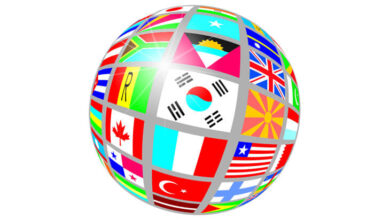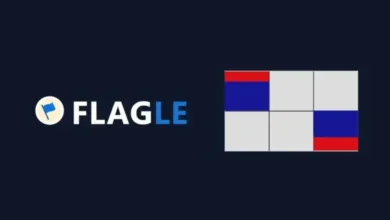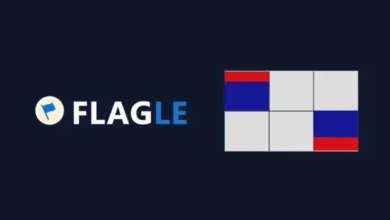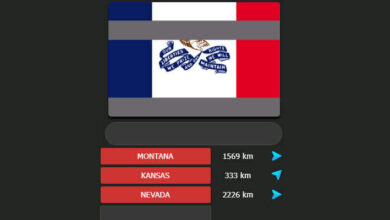Flagle: The Addictive Flag Guessing Game Taking the World by Storm

Introduction
Flagle is one of the most engaging and educational online games that has quickly captured the attention of geography enthusiasts worldwide. Similar to other word and puzzle games, Flagle challenges players to identify countries based on partial or pixelated images of their national flags. This fun yet educational game combines entertainment with learning, making it ideal for students, travelers, and anyone curious about global cultures. In this article, we’ll explore everything about Flagle—its gameplay, strategies, benefits, and why it has become a sensation.
What is Flagle?
Flagle is an interactive guessing game where players are shown small sections or blurred versions of a national flag. With each incorrect guess, more portions of the flag are revealed until the player identifies the correct country. The objective is simple: guess the flag in as few attempts as possible.
The game is designed to be challenging yet fun. It not only tests your visual memory of flags but also improves your knowledge of world geography.
The Origins of Flagle
Flagle was inspired by the viral success of word-based puzzle games that became popular during the pandemic. Recognizing the appeal of daily challenges and shareable results, developers created Flagle as a geography-focused alternative. By blending education with gamification, Flagle carved its niche among puzzle lovers and geography fans.
How to Play Flagle
- Daily Challenge Format – Each day, a new flag is featured. Players have one chance per day, similar to the “Wordle” format.
- Clue System – Players begin with a small, obscured section of a flag. With each wrong guess, more of the flag is revealed.
- Guessing Options – The player types in their guess from a dropdown list of countries.
- Winning the Game – The fewer guesses you use, the higher your success rate.
Features of Flagle
- Daily Puzzles: Keeps players engaged with fresh challenges.
- Geographical Learning: Boosts knowledge of countries and their flags.
- Visual Memory Training: Sharpens recognition skills.
- Competitive Fun: Shareable results encourage friendly competition among friends.
Why Flagle is So Popular
Flagle’s rise in popularity is due to several key factors:
- Accessibility: It can be played online without downloads.
- Educational Value: Parents and teachers encourage it for learning.
- Global Appeal: Flags are universal symbols that transcend language barriers.
- Social Media Sharing: Like other puzzle games, results can be shared to spark discussions.
Benefits of Playing Flagle
1. Improves Geography Knowledge
Players quickly learn to associate flags with their respective countries. Over time, this strengthens global awareness.
2. Enhances Memory and Focus
Recognizing colors, patterns, and designs trains the brain to retain information.
3. Encourages Healthy Competition
Friends often challenge each other to guess the flag in fewer attempts, creating a fun learning environment.
4. Provides Stress Relief
Puzzle-solving games like Flagle offer a break from routine stress, while still stimulating the mind.
Strategies to Master Flagle
- Study World Flags: Familiarize yourself with major continents and regional flag designs.
- Notice Color Patterns: Certain color schemes are unique to specific regions, such as green, yellow, and red in many African nations.
- Learn Symbols and Shapes: Stars, stripes, and crests often indicate cultural or historical backgrounds.
- Practice Daily: The more you play, the quicker you’ll recognize patterns.
Flagle vs. Other Puzzle Games
While games like Wordle test vocabulary and Heardle challenges music knowledge, Flagle uniquely blends visual recognition with geography. It stands out because it combines fun and education, making it more than just entertainment.
The Educational Impact of Flagle
Teachers and parents increasingly recommend Flagle as a learning tool. It helps children and students build global knowledge, improve memory, and develop problem-solving skills. For younger players, it introduces international diversity in a fun, engaging format.
The Global Community of Flagle Players
Flagle has built a strong online community where players share results, discuss strategies, and celebrate their daily wins. Social platforms amplify the game’s reach, keeping it relevant and continuously engaging.
The Challenges of Flagle
While fun, Flagle can be tricky:
- Some flags are very similar, making guesses difficult.
- Countries with less familiar flags pose greater challenges.
- Limited daily attempts mean players must think carefully before guessing.
Tips for Beginners
- Start by focusing on well-known flags such as the United States, United Kingdom, or Japan.
- Learn regional similarities—Scandinavian countries, for instance, share similar designs.
- Don’t rush—take time to analyze color combinations and shapes.
Advanced Flagle Techniques
For experienced players:
- Study obscure flags of smaller nations.
- Memorize continental groupings.
- Track your progress to identify recurring mistakes.
Why Flagle is More Than Just a Game
Flagle goes beyond being a casual puzzle—it’s an educational tool, a cultural bridge, and a way to connect with global identities. Each flag carries a story of history, independence, and pride. By playing Flagle, users indirectly learn about these deeper meanings.
Conclusion
Flagle is not just another online game—it’s an interactive learning experience that blends fun with education. By challenging players to recognize world flags, it sharpens memory, enhances geography skills, and fosters global awareness. Whether you’re a student, teacher, or casual gamer, Flagle offers something valuable for everyone. Its growing popularity proves that people enjoy learning when it’s engaging and rewarding.




